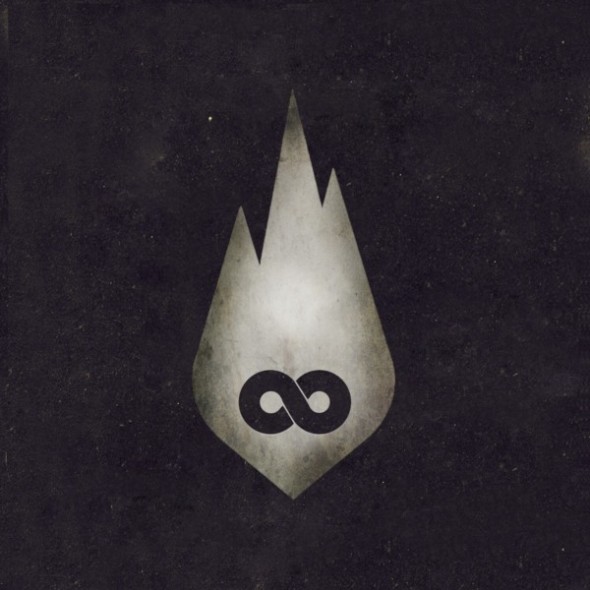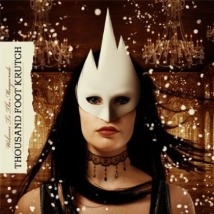*I have tried to keep spoilers to a minimum, but be aware that they are impossible to avoid completely.
Mass Effect 3 came out on March 6, 2012. It was the ending to a science fiction journey that spanned almost five years, three games, many choices, and eight story-related DLC. Heavily hyped, it received praise from the press; its aggregate score on GameRankings.com (for the Xbox 360 version) is 92.17% and is the 24th best ranked game for the Xbox 360 platform.
And yet, all was not well.
Rippling through the internet were waves of extreme dissent from fans who loathed the ending. Videos were made and posted to Youtube where they bashed the ending and Bioware. Bioware was somewhat taken aback by the intensity and proceeded to ‘fix’ their problem by releasing a free DLC on June 26. (Before I continue, I would like to say that Bioware should have included the Extended Cut DLC as part of the original game. I did not finish the game until after the DLC was released, and I did not think that it was an ‘extended’ ending, but rather, the ending that should have been there all along. Bioware screwed up initially.)
Still, even after the DLC was released, many fans were still unhappy because the core endings were the same, even if the presentation was much better. Fans still didn’t like it. But why? Why did so many fans hate the ending to a game series they loved so much? Why? Was it really that bad?
I hereby attempt to answer that question.
———————————————————-
Any writer or composer knows that endings are extraordinarily difficult to write. Regardless if it is a short poem, a novel, an academic essay, or a symphony, the ending is often the hardest thing to get right. A good ending fits with the aesthetics, scope, and tone of the rest of the work, providing a satisfying and worthwhile close. A bad ending undermines the work itself, drawing you out of your suspension of disbelief into frustration. There is no template for the ‘correct ending’ for a given work. Endings are particularly important in the last volume in collections of works, as this ending must not only function as the ending for the final volume, but also function as a proxy ending for the other volumes.
It seems that nobody really considers how difficult it is to write an ending for a significant work, and the ending is often judged more harshly than the rest of the work (perhaps unfairly, perhaps not). It is the last thing that we are left with after experiencing it and likely remember it well. Bad openings can be camouflaged by the quality of the subsequent material, but bad endings linger like the taste of bacon jelly beans.
Fans have a vested interested in endings, as they are, arguably, one of the most important things that happens in a work. This is especially true for series which span years and whose ending also ends a chapter in fans’ lives. In recent times, no work embodies this description more than Harry Potter and the Deathly Hallows.

HPatDH ends with a huge bang and an epilogue that jumps years into the future Rowling, actually a terrific writer, was under huge pressure, and I think she wrote the perfect ending and epilogue. But…remember in 2007, when the book came out, how much criticism and, well, whining there was? The epilogue was particularly under fire. Here are some quotes from users in a December 2008 thread on goodreads.com:
“The WHOLE epilogue is corny! Not just the names…But it’s still predictable.”
“It was a big let down about three paragraphs in I nearly decided to skip the epilogue.”
“Yes, both predictable and cheesy.”
“I did not like the ending of the book or the epilogue…Yes, a lot of my favorite characters did die, but the epilogue should have shown that Harry was effected by their deaths through his whole life if he were to live. This was just too predictable and to unrealistic for me”
“My complaint about it is that it seemed very rushed and didn’t have a lot of thought put into it.”
Harry Potter fans are some of the most loyal and passionate, and yet a very vocal segment expressed unhappiness.
Let’s look to another book, one that was recently written and released: Christopher Paolini’s Inheritance, final book in the Inheritance Cycle started by the book Eragon. The ending was not quite as effective as Rowling’s, but was, in my opinion, appropriate and inevitable. And then I looked at the internet.

Again, these quotes are from a forum, this time the unofficial inheritancebook4.com:
“WHAT KIND OF DUMB ENDING WAS THAT, FOR A BOOK WITH OVER 8OO PAGES”
“The more i think about the book, the more angry i get!…There is a certain relationship between Writer and Reader and [author Christopher Paolini] has destroyed that relationship by giving us a bad ending.”
“It’s just [Paolini] took so many predictable turns with this story… I can sorta see why it took him so long to put this out, but still! With that much time, he could have come up with something more interesting! More suspenseful!”
“I gotta admit, some of the theories I read on this site resolved certain issues MUCH better than the actual turn of events in the book. I remember he said in one of the last interviews that he’d left one or two open-ended points, but I didn’t think he’d leave us with so many UNRESOLVED plots.”
For now, let us leave the realm of books and move on to a different media–film.

The Lord of the Rings, as written by J.R.R. Tolkien, is perhaps the most influential fantasy story ever written. However, nowadays, many people are more familiar with Peter’ Jackson’s film adaptations; this is logical, as the films are classics in their own right and are more accessible than the mammoth book. The finale, The Return of the King, garnered 11 Academy Awards including Best Picture. And yet, the ending was the one thing that I heard the most complaints about. These are quotes from a thread on ign.com:
“If the ending had not been so butchered, this could have stood out as my favorite movie ever. I still love the films, but the ending was so terrible. Jackson’s failure to stick to the books took a lot of greatness out of these movies.”
“I did miss the lack of closure for the majority of the central cast though. There was little or nothing known about what happened to Pippin, Merry, Eowyn, Eomer…Theoden-corpse, Legolas, etc.”
“I understand that there are a ton of characters who need closure, but I felt there was far too much falling action…Too many fadeouts, indeed.”
Remember, this was a fantasy movie that won the most Academy Awards in history, and yet fans were unhappy with its ending. This ending is usually criticized for being either too short or too long, and obviously it can’t be both. Something else is going on here.
————————————————————–
So, in three separate cases, fans have been dissatisfied with the ending to the saga. Too long, too short, not enough closure, didn’t follow the original closely enough, not what they expected, unresolved plots, rushed, lethargic, too happy. Let me ask you something: what do all of these complaints have in common?
Answer: they come from the fans.
As a fan of a thing, one becomes attached to it. One takes it and appropriates it as his or her own, and this is what makes fandom great. This is why Harry Potter was such a big deal for an entire generation–these kids ‘grew up’ with Harry and friends, even moreso for games where one literally takes an active role in the story. This sort of attachment is all fine and dandy until the source of the fandom is coming to a close. Then emotions run high, and even the smallest disappointment is magnified, as there will be no upcoming works to smooth it over.
I have a theory, and I hope my illustrations above have helped to support it. My theory is that, in many cases, passionate fans of a franchise or series are unwilling to let it go. As such, their view of the final offering’s ending is often negative or, at the very least, more critical than it would be for literally any other point in that series. Am I saying fans are incapable of good judgment? No. Am I saying that bed endings can always be explained away due to the fans’ reaction? No. But there is a curious effect going on here. In four cases, fans have been very vocal about the endings to some critically praised franchises after supporting these franchises for, in some cases, many years.The fan outpouring was immense, and Bioware responded by releasing the free DLC Mass Effect 3: Extended Cut, which added a few key pieces to each of the endings. I bought and finished Mass Effect 3 in a post-Extended Cut world. I was aware of an apparent controversy regarding the endings and braced myself for the worst. Well…it wasn’t bad at all. I didn’t feel at all like I was watching an ‘extended cut.’
As a video game, Mass Effect is a wholly different experience. Fans not only watched or read about Commander Shepard–they were Commander Shepard. Each game took between 15-30 hours of playthrough for a normal run, and I would guess that most intensive fans did two playthroughs. By the end of ME3, we are talking about 45-90 hours of playtime, much more than, say, the 10 hours it takes to watch all of the Lord of the Rings movies.
I liked the ending; I really did. I enjoyed it and thought it was a good, solid ending to the series. I’ve come up with some things to consider as we continue to play and discuss games:
1. It is not your world
This is important to remember–it is not your world. It is the creator’s world. If they want to do something that they feel is the best ending for their creation, that’s their choice. It is not excuse for a bad ending–but it should be one for an ending you didn’t like. For Mass Effect in particular, I think many fans saw the world as their world. They made the decisions, they decreed if the Quarians or Geth would survive, told Shepard to headbutt a Krogan, and who would be his (or her) lover. This was all an illusion, as Bioware was ultimately in control of the story, not us. While this seems obvious, the illusion was so real that, for many fans, it was a rude interruption when the illusion had to be revealed, the reigns taken from an ending without a decision wheel.
2. There doesn’t need to be closure on everything
In the ME3 ending, people wanted to know everything. There was a lot that happened in three games worth of time. Unfortunately, a story needs not tie up everything. Not doing so allows for future creative endeavors within the world–besides, you don’t want an ending that goes on forever, and if you go that route, people will still claim it is too short. Return of the King, I’m looking at you. There was so much that happened in Mass Effect, it would be impossible to cover all of the events that happened over three games–the fate of a dozen species, decisions regarding individuals, planets, groups–in a satisfactory ending. At the end of Star Wars: Episode VI, there isn’t actually much closure at all. Luke and company have a party with the Ewoks. That’s pretty much it. But I have yet to experience any unhappiness over this very incomplete ending. What happened to Hoth? To the Empire? Is the Alliance still underground? Etc.
3. If what happens isn’t what you think should have happened, it is not necessarily bad
Self-explanatory, related to #1. A disliked ending is not a bad ending of little quality; not necessarily. I like the Transformers movies. They’re not good, but I like them. Quality and opinion are different.
4. If you don’t like it, could you do better?
Seriously better? Would it be well-received–or would you do something only you would enjoy? Endings are hard. This is not to say that all endings are off-limits because fans aren’t writers; that would be ridiculous, and no one could criticize anything. But the ‘fan’ ending for ME3–the Indoctrination Theory–was a strained attempt at forcing a square peg into a round whole and didn’t work. If you can’t see that ‘it was all a dream’ is a flatly unsatisfying and lazy ending, you probably shouldn’t criticize endings as much.
So: was the Mass Effect 3 ending bad? I don’t think so. That’s a different post. But what I do know is that fan responses to these sorts of things are curiously slanted negatively in most cases. Perhaps we should take a step back and think about it before we take potshots at the work of very talented people. We certainly can apply this thoughtfulness to the story-driven games we play.
If you still don’t like it then? More power to you.



















